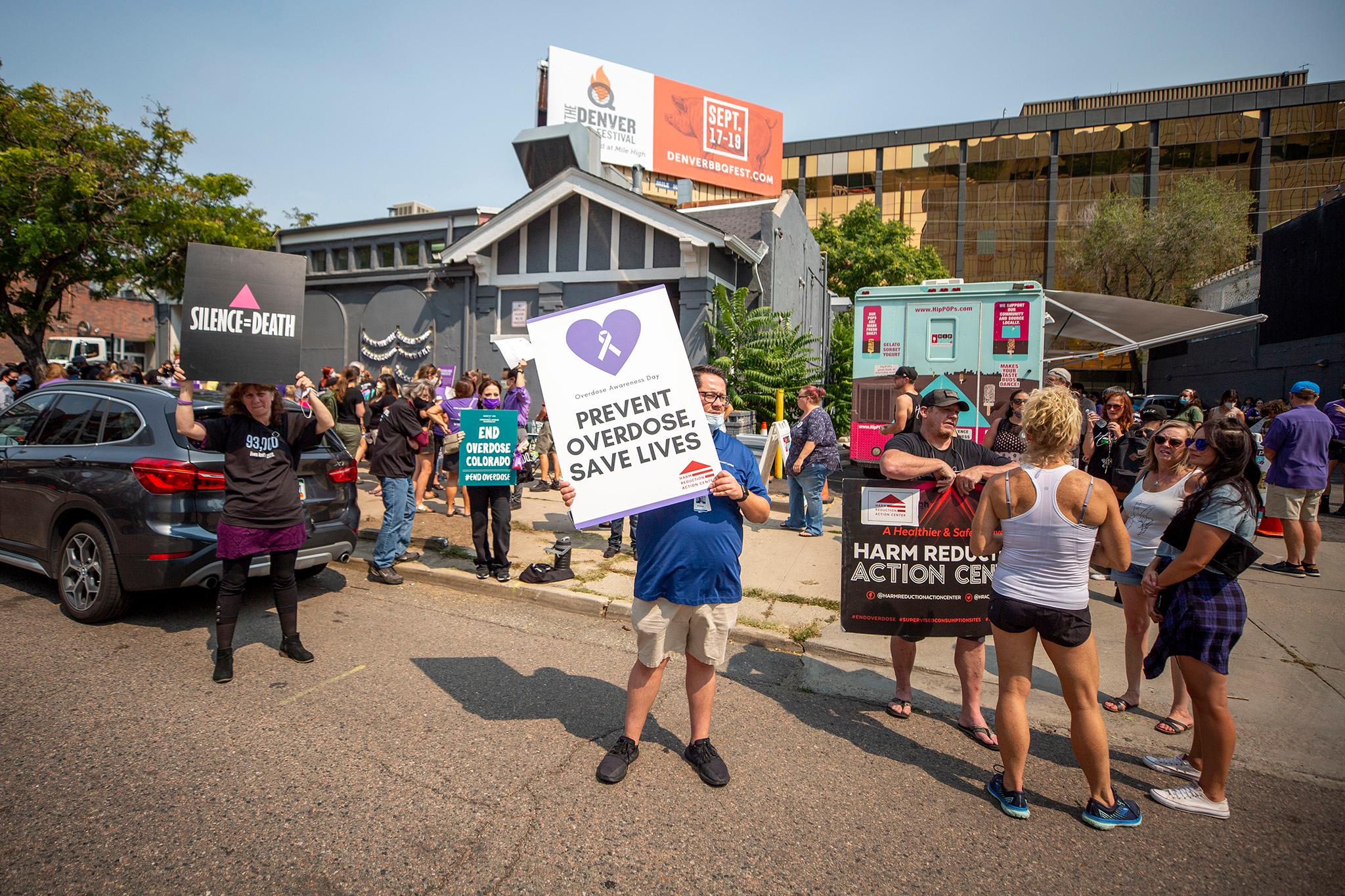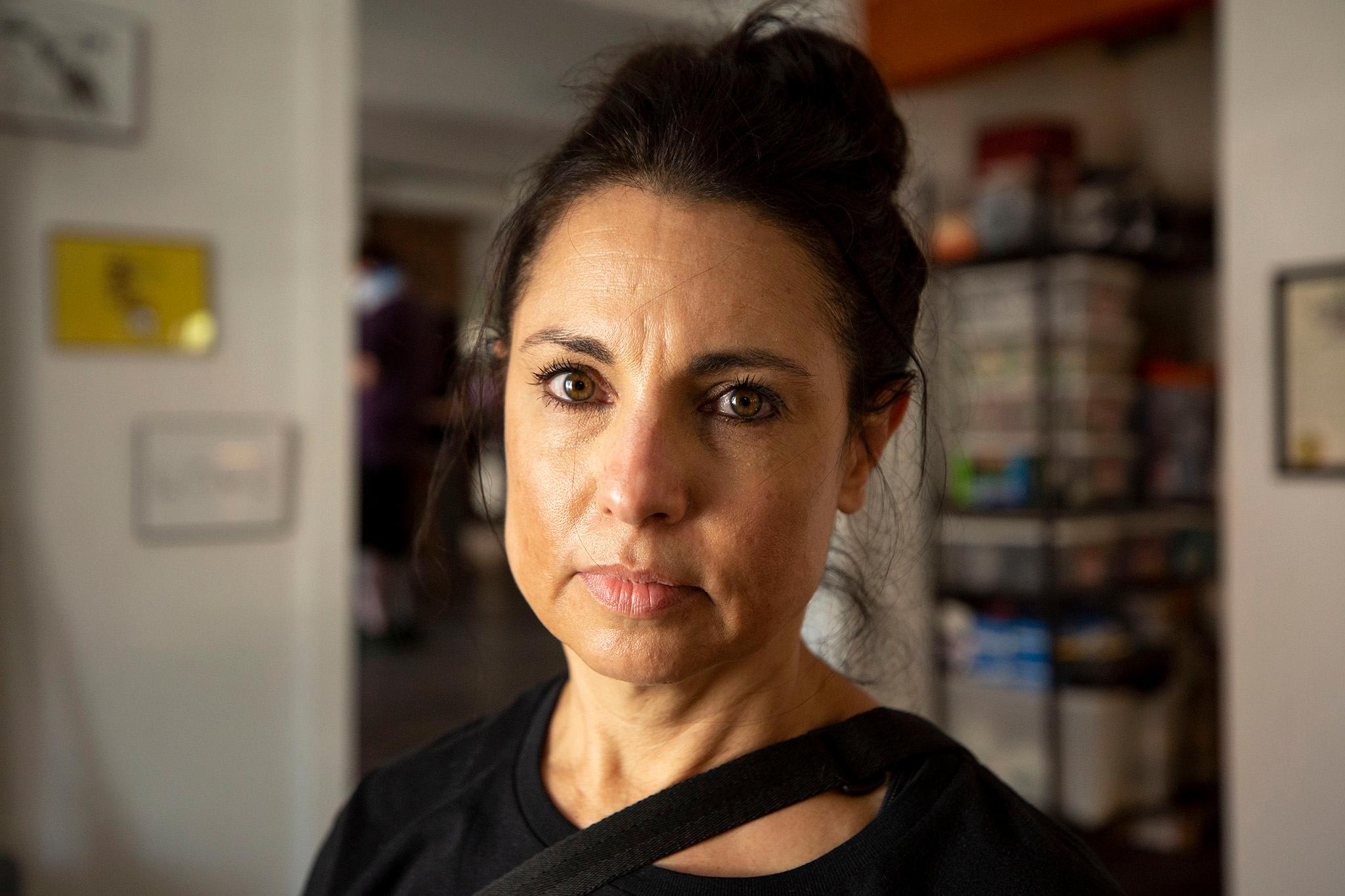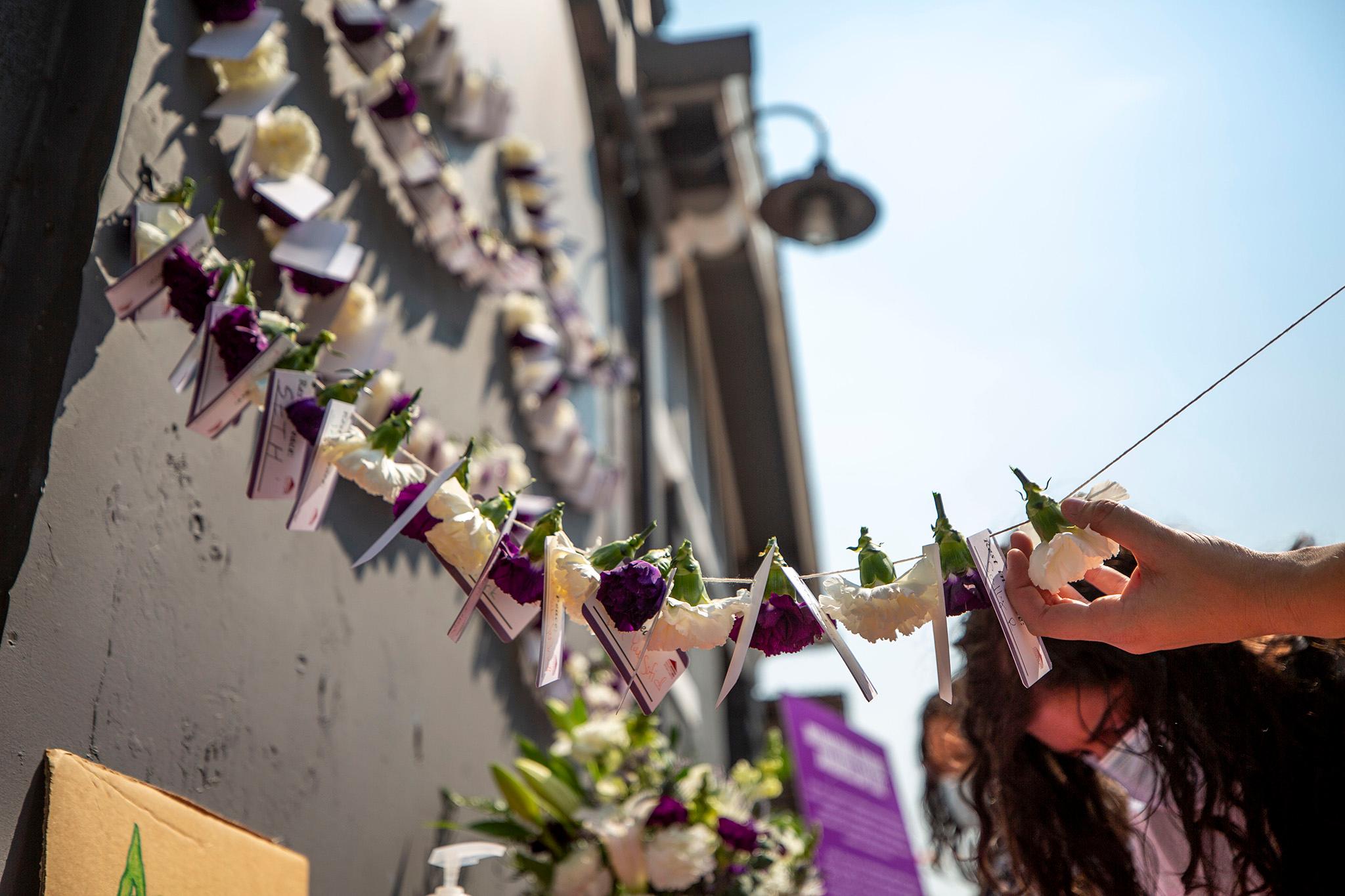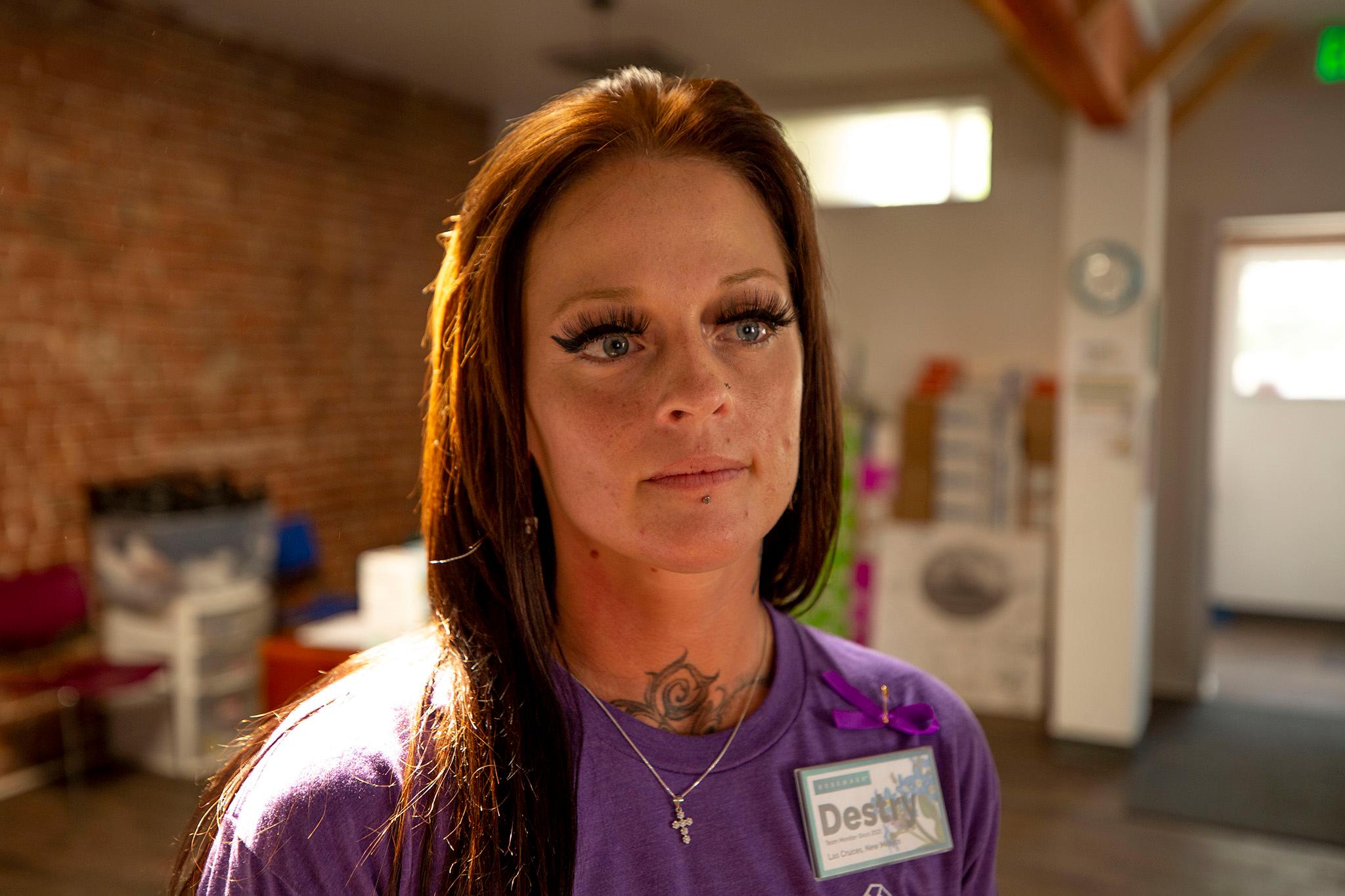Destry Leatherwood's wake-up call came this year. And it cost her dearly.
Leatherwood, 31, is recovering from an opioid addiction she said started about six years ago. Her recovery path was prompted by tragedy. Her father, John Irby, had a heart condition, and after he snorted fentanyl in April, Leatherwood said her father's heart stopped. He had just turned 50.
"I remember just grabbing him, and thinking to myself, 'That's going to be me if I don't stop,' " Leatherwood said.
Leatherwood was among the 300-plus people who walked through the Harm Reduction Action Center on Lincoln Street and 8th Avenue on Tuesday to commemorate International Overdose Awareness Day.
Leatherwood said she and her father had talked about recovery. They both used opioids together. She said they used drugs to cope with the death of her brother, Thomas Tolley, who died in 2020. Her father had used opioids for more than 10 years, and he was in recovery before he started using drugs again after his son's death.
Leatherwood ended up getting treatment at Denver Health, which prescribed her Suboxone, a medication used for people with opioid addiction. It hasn't been an easy path. She said she stopped taking the medication, only to end up using alcohol, before restarting her use of the medication. She credits it for helping save her life.
"I feel amazing. I feel free," Leatherwood said.

The Harm Reduction Action Center runs a syringe exchange program, connects people to health care and provides other services to drug users in the metro area. Most of the people the center provides services to are people experiencing homelessness.
Lisa Raville, the center's executive director, was animated and chatty with everyone who walked near her on Tuesday. She jumped into tour guide mode as soon as a large group of people walked inside the center, explaining what the center does and who it benefits.
Raville has been sounding the alarm on the growing number of fatal drug overdoses -- and perhaps more importantly, ways on how to prevent more -- for years.
"Today is about people who use drugs," Raville said. "Today is about those who've lost on the war on drug users, which has been incredibly racist and classist for the last 50 years -- forever, really."
Several people on Tuesday wore black T-shirts with the number 93,000 -- a reference to the number of drug deaths in the United States last year.
Joelle Fairchild has advocated for bills to help provide more treatment options for people with addiction. Like other advocates, she has a deeply personal reason for this: Her son, Tony, died of a heroin overdose in October 2014. He was 27. She wore a T-shirt with a photo of Tony.
"It's therapeutic," Fairchild said about Tuesday's event. "I also don't want anyone else to suffer like I have."
Fairchild notices how people sometimes react when she tells them, bluntly, that her son died from a heroin overdose. People recoil. They shut the conversation down. To her, it's all connected to the stigma of addiction and drug use carries. Being around other people who have lost family members to an overdose, and have dealt with similarly unpleasant experiences while grieving, can be soothing.
"It brings me peace," Fairchild said.

People held up signs and cheered as traffic whizzed by on Lincoln Street. Raville was happy with the number of people who came out.
"Our community is struggling with overdose deaths and the overdose crisis," Raville said. "I am really pleased to see not only people use drugs be here, but also service providers, council (members) are here. People are paying attention because we are losing too many people to an unpredictable and toxic drug supply."
Raville suggests people in Denver carry naloxone, the medication that can reverse an opioid overdose, and advocate for the supervised drug use site, which she's started calling overdose prevention sites because that's its primary goal.
The numbers in Denver are grim.
Fatal drug overdoses have risen steadily over the past few years, just like the rest of the country. The city had 370 drug deaths last year, up from 225 the year before. Drug deaths per capita (per 100,000 people) in the city have grown each year since 2015.
One culprit for the uptick in overall fatal overdoses is fentanyl, the powerful synthetic opioid that's made its way into the city's drug supply. At least 44 percent of fatal drug overdoses in Denver last year involved fentanyl. The opioid can be mixed with other drugs and can be found in pill and powder form. Locally, it's even been found in cocaine. Synthetic opioids like fentanyl are now the most common drug found in fatal drug overdoses in the United States, according to the National Institutes of Health.

Most deaths in Denver involve multiple substances; 51 percent of people this year who died from drug overdoses had three or more drugs in their system. Drug deaths involving methamphetamine also are rising in Denver, rising sharply since 2015.
The Denver City Council passed a law in 2018 to allow a supervised drug use site in the city, which advocates believe would help curb drug deaths. Raville has even set up a full-size mock-up at the Harm Reduction Action Center, but without a matching statewide law passed by the state legislature, Denver's local law is moot.
State Sen. Julie Gonzales of Denver, a Democrat, said she personally backs creating such a site. She hasn't had a conversation with her colleagues about bringing a bill forward, though she said she's currently in "listening mode" to figure out what the best policy is and figuring out how to convince more colleagues to back the bill. She toured the center on Tuesday.
"We can't just go back to normal, because normal didn't work before the pandemic," Gonzales said.
Leatherwood said she plans on using her medication for several years. She said being judged and feeling alone are among the toughest things about being a person with addiction. Seeing the people who showed up on Tuesday made her personally feel supported.
"It really means something," Leatherwood said. "It's great to be a part of it."














